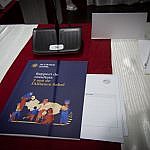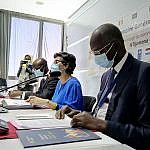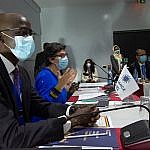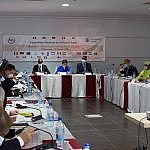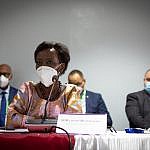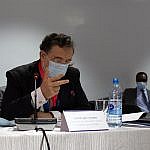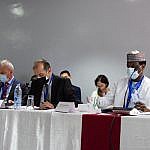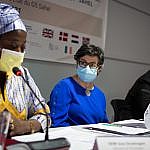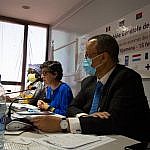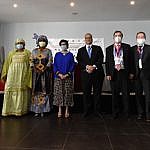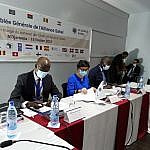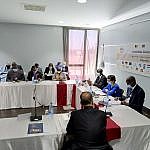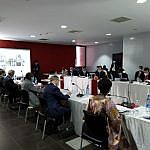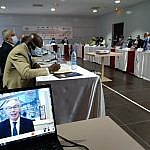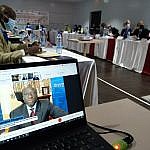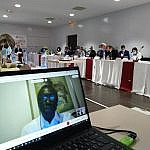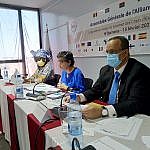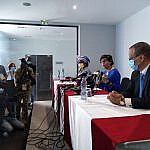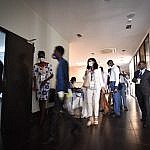In the Sahel, do more and better.
Sahel Alliance members and partners mobilized at the end of the 2nd General Assembly of the Alliance
N’Djamena, 15 February 2021 – Representatives of the G5 Sahel and the Sahel Alliance met in N’Djamena on 15 February 2021 during the 2nd General Assembly of the Sahel Alliance held on the sidelines of the 7th ordinary Summit of the G5 Sahel heads of state. Concerned about a difficult socio-economic situation and the persistence of crises, the members of the Sahel Alliance announced the strengthening of their joint actions with the G5 Sahel to improve the living conditions of Sahelian populations in a sustainable manner.
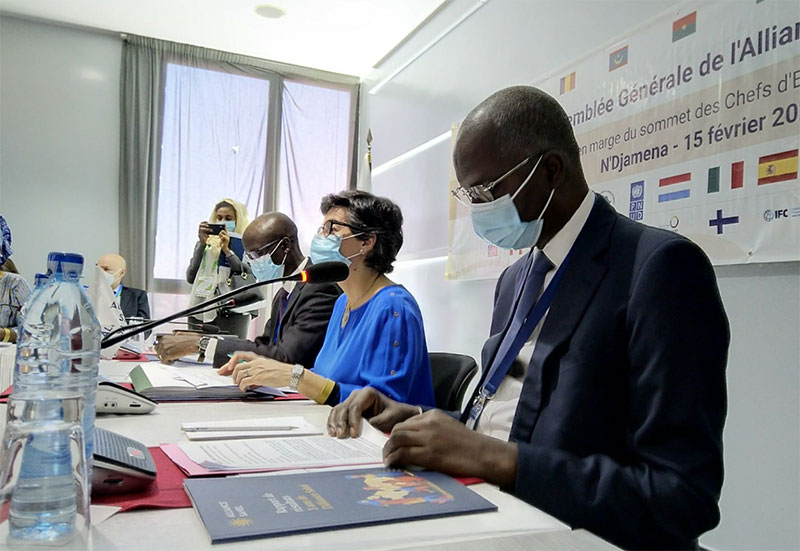
Despite its multiple potentials, the Sahel continues to face persistent crises and vulnerabilities are worsening in several regions. The COVID-19 pandemic, the effects of climate change, exacerbate an already complex and fragile situation. This calls on the G5 Governments, supported by the members of the Sahel Alliance, to do more and better. Alliance members reaffirmed at the 2nd General Assembly their commitment to increasing co-financing and joint projects, favouring flexible and simplified implementation procedures and reducing the transaction costs of interventions. In this regard, they welcomed the establishment of the Lake Chad and Liptako-Gourma Facilities and the imminent launch of a new G5 Sahel Alliance funding instrument.
The pandemic has aggravated an already complex and fragile situation. Alliance members have mobilised to respond to the health and food emergency, to reduce the social and economic impacts of the pandemic. We are committed to working towards post-COVID recovery, and to intensifying joint efforts to strengthen public health services and to achieve an inclusive and sustainable economic recovery,” said Arancha González Laya, Spanish Minister of Foreign Affairs, European Union and Cooperation, President of the General Assembly of the Sahel Alliance.
Alliance members also pledged to support the actions of the G5 Sahel countries to redeploy and maintain the state and public services in the most vulnerable areas, with a focus on providing sustainable essential services, building resilience and restoring social cohesion. To address both the most urgent needs and the root causes of the crises, they are resolutely committed to implementing an integrated territorial approach (ITA) in the priority areas, adapted to the specifics of each territory, in close coordination with the G5 Sahel Executive Secretariat, the Sahel Coalition and the Partnership for Stability and Security in the Sahel. In these areas, more attention will be paid to the most vulnerable people, women and young people, to their education, their training, as well as their social and economic integration, to restore their confidence in the future.
It will not be possible to bring peace and stability to the Sahel if women and young people are left behind. Therefore, special attention must be paid to these groups. Especially with regard to their access to education, training and employment,” said European Union International Partnerships Commissioner Jutta Urpilainen.
Members of the Sahel Alliance agreed to establish a strengthened exchange framework with the G5 Sahel Governments to intensify dialogue on public policy and priority sectoral reforms, in line with the 2030 Agenda for Sustainable Development. “This framework will first be tested in Chad, in a spirit of mutual accountability,” according to Dr Issa Doubragne, Chad’s Minister of Economy, Planning, Development and International Cooperation.
On the sidelines of the General Assembly, in partnership with the Economic Coalition in the Sahel, the Union of Chambers of Commerce and the Union of G5 Sahel Employers, they organized an event dedicated to supporting the Sahelian private sector, recognizing its essential role for stability and development.
The General Assembly of the Sahel Alliance, chaired by Ms. Arancha Gonzalez, Spanish Minister for Foreign Affairs, European Union and Cooperation, experienced a high-level participation, including the attendance of Ms. Louise Mushikiwabo, Secretary General of the International Organization of Francophonie, Dr. Issa Doubragne, Minister of Economy, Planning, Development and International Cooperation, Mr. Ismail Ould Cheikh Ahmed, Mauritania’s Minister of Foreign Affairs, Cooperation and of Mauritanians abroad, of Mr. Ousmane Mamadou Kane, Minister of Economic Affairs and Productive Sectors, Ms. Ataka Zaharatou Aboubacar, Minister Delegate to the Nigerian Minister of Foreign Affairs, Mr. Djimé Adoum, High Representative of the Coalition for the Sahel and Mr. Maman Sidikou, Executive Secretary of the G5 Sahel. Virtually attending were Mr. Tony Blair, Executive Director of the Tony Blair Institute, Dr Gerd Müller, German Federal Minister for Economic Cooperation and Development, Ms. Karina Gould, Canadian Minister for International Development, Mr. Flemming Loller Mortensen, Danish Minister for Development Cooperation, Mr. Jean-Yves Le Drian, French Minister for Europe and Foreign Affairs, Mr. Dag-Inge Ulstein, Norwegian Minister of International Development, Ms. Kitty van der Heijden, the Dutch Deputy Minister for International Cooperation, Ms. Jutta Urpilainen, European Union Commissioner for International Partnerships, Mr. Ousmane Diagana, Vice-President of the World Bank Group for West and Central Africa, Mr. Abdoulaye Mar Dieye, the United Nations’ Special Coordinator for Development in the Sahel, Mr. Ambroise Fayolle, Vice-President of the European Investment Bank, Mr. Rémy Rioux, Director-General of the French Development Agency and the Ambassadors or Special Envoys for the Sahel of most member countries.
Members of the Sahel Alliance welcomed the accessions in 2020 of Norway, Ireland and the International Organization of Francophonie (OIF), respectively as members and observers.
Sahel Alliance members and partners will pursue their efforts in the coming months. According to the Mauritanian Minister of Economic Affairs and Productive Sectors of the Islamic Republic of Mauritania:
We will have to work towards the implementation of the operational recommendations of this General Assembly. I am referring in particular to the implementation of the Integrated Territorial Approach, the strengthened and adapted support to the private sector.”
At the close of the General Assembly, the following recommendations were adopted
- Intensify dialogue with the G5 Sahel and its member states;
- Pursue coordination and concentration efforts on vulnerable areas;
- Support the presence, redeployment and maintenance of the state and public services in the territories of the G5 Sahel countries;
- Support the efforts of G5 Sahel governments to implement structural reforms for transparent, inclusive and effective governance;
- Work within the framework of the Sahel Coalition to implement a coordinated and adequate response to the multiple Sahel challenges, in close cooperation with the G5 Sahel Executive Secretariat and the Sahel Stability and Security Partnership;
- Support the response of the G5 Sahel countries to the health, economic and social challenges caused by the COVID-19 pandemic;
- Providing greater efforts for gender equality and women’s rights in the G5 Sahel countries;
- Providing support tailored to the development of the Sahelian private sector.
The Sahel Alliance, concrete results
Despite a difficult context, in 3 years, thanks to the partnership between the G5 Sahel countries and the Sahel Alliance, concrete and tangible results have been achieved, particularly in terms of access to essential services. These results reflect a growing commitment and more effective response mechanisms on the part of members of the Sahel Alliance. Thus, since its launch in 2017, the number of funded projects has doubled, as have financial commitments (from 7.3 to 16.9 billion euros) and disbursed amounts.
Thanks to the Sahel Alliance projects, 550,000 people have had access to electricity, 1.6 million people have benefited from sanitation services and 5.5 million have been provided with drinking water. In terms of food security and health, the Alliance has enabled 2.9 million people to benefit from food assistance, 3.4 million children to be vaccinated and 660,000 women of childbearing age to benefit from a family planning method. In terms of training and professional integration, 515,000 producers and breeders were supported, 420,000 young people received vocational training, 2,400 judges, lawyers and clerks were trained and 1,250 civil society organisations were supported.
For greater transparency and accountability, the Sahel Alliance has just launched a public data portal on its projects: https://opendata.alliance-sahel.org/portfolio
Information & contact (press)
Aude Rossignol
Communications Officer
Unit of Coordination of the Sahel Alliance
aude.rossignol@giz.de
Tel: + 235 60 59 01 81
Photo gallery:
Statement (February 15, 2021)
Joint statement of the Sahel Alliance members
Joint declaration on climate change
Joint declaration on food security and nutrition
Joint declaration on implementation of UNR1325 resolution in the Sahel
Side-event “Dialogue with the Sahelian private sector” – Conclusions and recommendations
Speeches
Speech of E. Ousmane Mamoudou Kane, President of the Council of Ministers of the G5 Sahel, Mauritanian Minister of Economic Affairs and Productive Sectors
Speech of E. Dr Issa Doubragne, Chadian Minister of Economy, Planning, Development and International Cooperation
Speech of SE Arancha Gonzales Laya, Spanish Minister of Foreign Affairs, European Union and Cooperation
Speech of S.E. Jutta Urpilainen, European Commissioner for International Partnerships
Speech of S.E. Louise Mushikiwabo, Secretary General, OIF
Speech of E. Jean-Yves Le Drian, French Minister for Europe and Foreign Affairs
Speech of Christoph Rauh, BMZ, Chairman of the Sahel Alliance Operational Steering Committee
Speech of Tony Blair, Executive Director of the Tony Blair Institute
Présentation of M. Maman Sidikou, Executive Secretary of the G5 Sahel
Speech of M. Abdoulaye Mar Dieye, UN Special Coordinator for development in the Sahel

